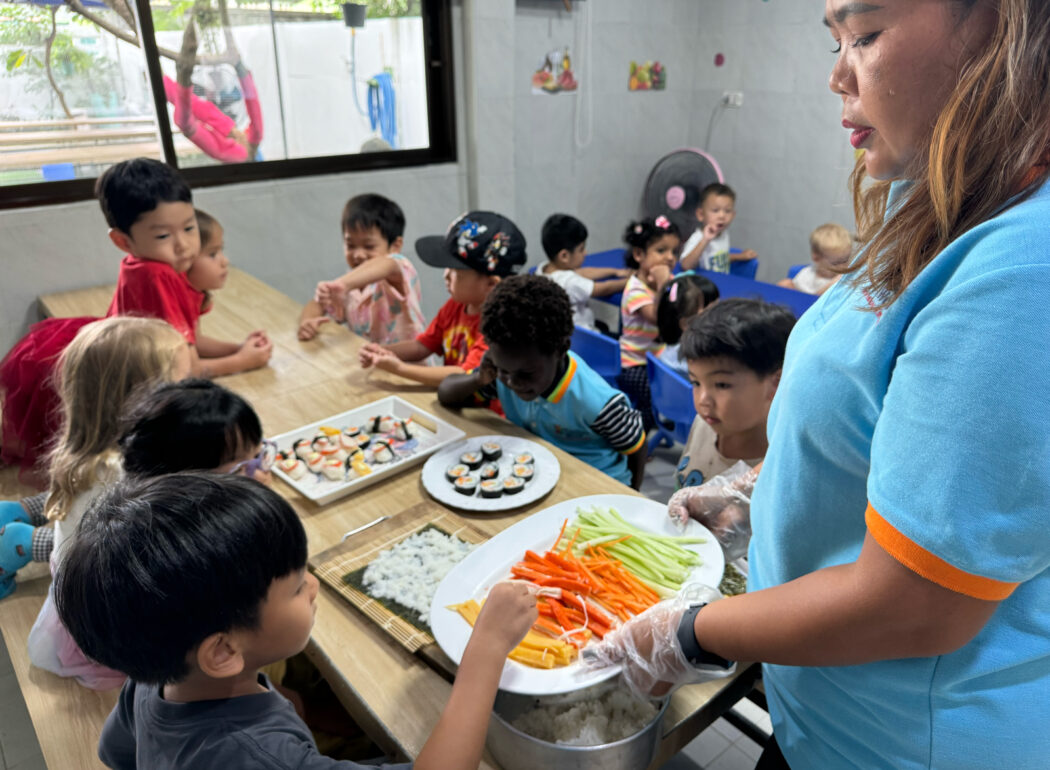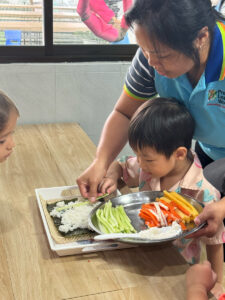
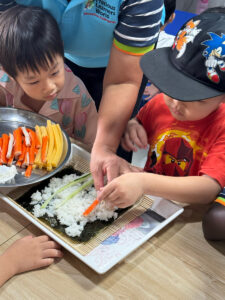
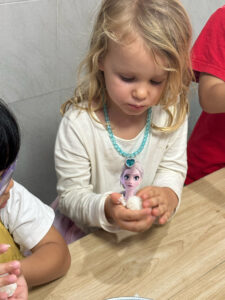
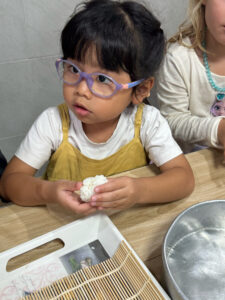
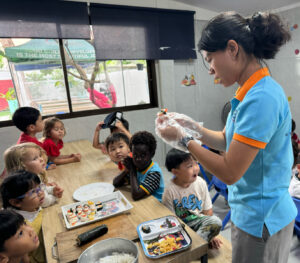
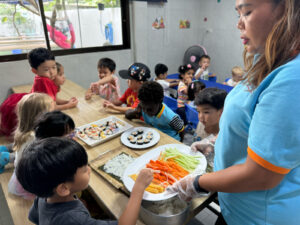
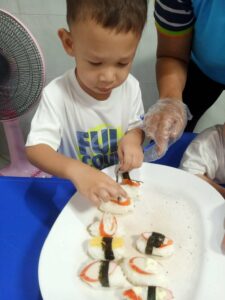
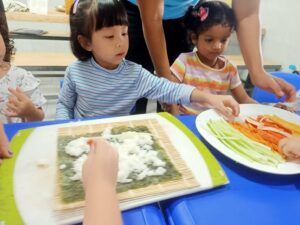
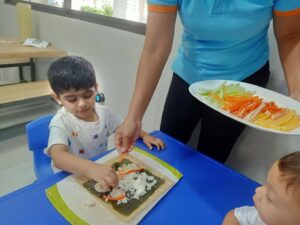
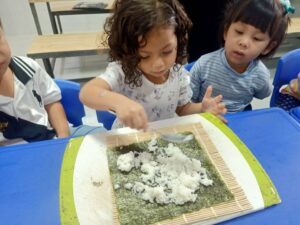
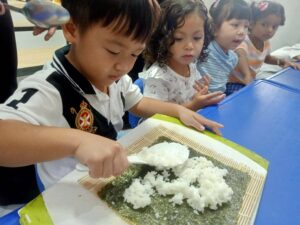 Teaching kindergarten children the art of making sushi is a fun and educational activity that can support various aspects of their development. Here are some of the benefits:
Teaching kindergarten children the art of making sushi is a fun and educational activity that can support various aspects of their development. Here are some of the benefits:
1. Fine Motor Skills: Making sushi involves tasks like rolling, cutting, and arranging ingredients, which help children develop hand-eye coordination and refine their fine motor skills.
2.. Cultural Learning: Sushi-making introduces children to Japanese culture, fostering an early appreciation for diversity and encouraging curiosity about other traditions and cuisines.
3.. Creativity and Imagination: Children can express their creativity by selecting ingredients and arranging them in unique ways, promoting imagination in food preparation.
4. Healthy Eating Habits: By using fresh ingredients such as vegetables, fish, and rice, children learn the importance of balanced nutrition and may be more inclined to try healthy foods.
5. Following Instructions and Patience: The process of making sushi involves several steps that require children to follow directions, teaching them patience and focus.
6. Collaboration and Social Skills: Sushi-making can be a group activity where children work together, share ingredients, and help each other, fostering teamwork and communication skills.
Overall, the experience of making sushi can be both a fun and enriching part of a child’s early education, blending creativity, cultural exposure, and practical skills.

